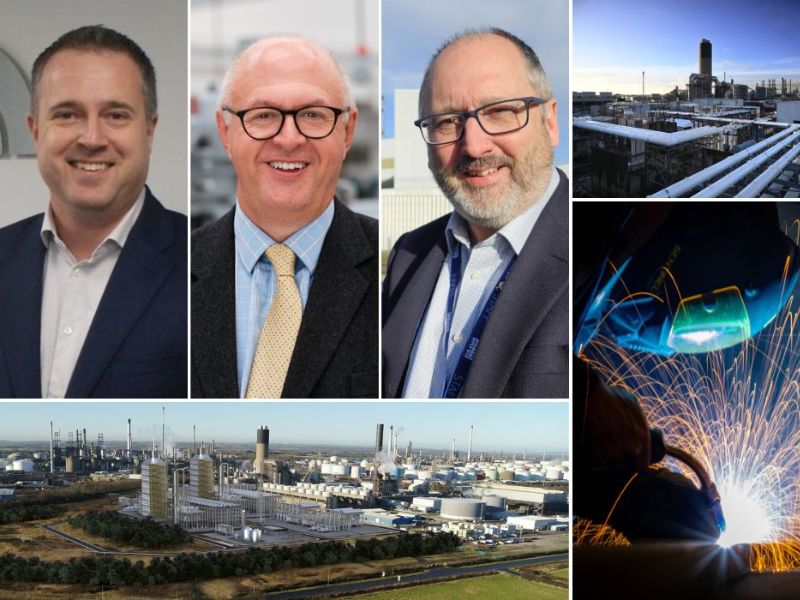Skills Providers Ready to Soar in Humber as Infrastructure and Industry Readies for Clean Growth Through Carbon Capture

Team Lincolnshire ambassadors, skills leaders and academics are united in the belief that the Viking CCS project to future-proof heavy industry in the Humber is the right call, right now.
Cleaning up of one of the hardest to abate sectors is heralding a boom in jobs across vital engineering disciplines, with unprecedented levels of demand close to being created. It would forge a regional economic stimulus of significant proportions if fully backed in Westminster.
Plans are at a critical phase for a carbon capture and storage proposal that will see emissions from the UK’s most carbon intensive cluster extracted before they hit the atmosphere, sending the gases down new and repurposed pipelines to be stored permanently under the near North Sea. A total of 20,000 jobs are envisaged for the wider scheme build out, with many hundreds of high value careers also created to operate and maintain new facilities, while ensuring existing power stations, chemical plants and refineries thrive for decades.
Team Lincolnshire ambassador CATCH is the beacon training facility progressing plans to expand and deliver for industry from the very heart of the cluster.
David Talbot, chief executive of CATCH said:
“The Humber is the biggest carbon emitting industrial cluster in the UK, with some 20 million tonnes of carbon are emitted every year, and we have around £15 billion of investment identified as part of the transition to Net Zero. You can’t build that infrastructure, operate it or maintain it, without the workforce.
“We need 20,000 new engineering / construction trades people to build the infrastructure to get us there. If we don’t build that workforce now, we can have the best projects in the world, but we won’t be able to build them, and that’s what we’re here to support.”
He recognises the need for plans to be approved and final investment decisions made, and welcomed the recent call for clarity from Viking CCS member, power provider VPI, itself seeking to become an anchor emitter.
“There are great plans waiting for the green light,” Mr Talbot said. “Employers, be it contracting businesses or those investing, won’t commit until there’s a high level of certainty. We are trying to pump prime the whole system, but it is difficult and there are challenges.”
In the same industrial setting of Stallingborough sits the latest of three sites operated by fellow Team Lincolnshire ambassador Humberside Engineering Training Association, itself a £5.5 million recent investment.
Iain Elliott, chief executive of HETA, said:
“Industry and skills providers have already demonstrated commitment and intent to these projects by investing in existing training centres, and we have plans to upscale existing facilities to meet the demand for skilled people.
“At HETA we are seeing record levels of applicants wanting to take up roles in engineering and manufacturing, more and more people are choosing the apprenticeship route as their education programme of choice. Young people understand the environmental issues in the UK and across the globe, and would see these projects as being exciting and worthwhile so this is a chance to mobilise and upskill the future workforce to meet the demand that will come from the pan-Humber decarbonisation process.”
ECITB board member Richard Law, managing director of Grimsby-based Technica Measurement, said:
“Getting the just transition right would be immense for the Humber region; it would turn heads around the world when it comes to retaining heavy industry on the path to Net Zero. Getting it wrong and not investing to aid such critical components of our sector to remain competitive risks many opportunities. We’ve seen the concern in recent months over steel, when we should be drumming up interest in our proud industries to meet anticipated demand.”

